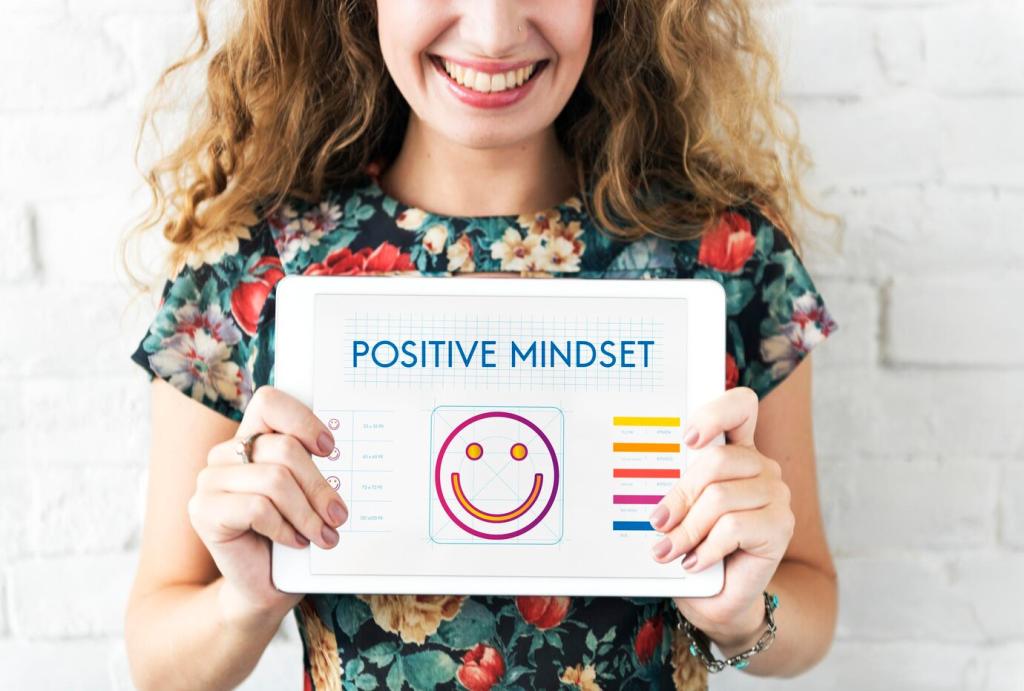
Understanding Emotional Intelligence in Personal Growth
Emotional intelligence is a foundational component of personal growth, encompassing the ability to perceive, manage, and regulate emotions in oneself and others. It is not only about recognizing emotions but also about effectively using this understanding to enhance relationships, decision-making, and overall well-being. This page delves into the essential aspects of emotional intelligence, highlighting how it can be developed and applied in daily life for improved personal and interpersonal outcomes.
Previous slide
Next slide

The Role of Self-Awareness in Growth
Understanding Your Emotional Triggers
Everyone has emotional triggers, which are specific experiences or situations that evoke strong emotional reactions. By identifying these triggers, individuals can gain insight into their behavioral patterns and learn to respond rather than react impulsively. This heightened sense of awareness helps in dissecting the roots of our emotions, whether they arise from past experiences, unmet needs, or underlying beliefs. The process of uncovering and understanding these triggers is essential for effective self-regulation and for fostering healthier interactions with others.
Recognizing Thought Patterns
Thought patterns significantly influence emotional responses and life outcomes. By becoming attuned to recurring thoughts—whether positive or negative—individuals can uncover internal narratives that shape self-perception and behaviors. Recognizing unhelpful or self-defeating thought patterns opens the door to challenging and reframing them in a more constructive light. This conscious examination of thought processes increases mindfulness, allowing people to make deliberate, empowering choices rather than being led by automatic, habituated responses.
Building an Honest Self-Assessment Practice
Developing an honest self-assessment practice involves regular introspection and feedback-seeking. By reflecting on recent experiences, soliciting input from others, and considering both successes and shortcomings, you can develop a more realistic understanding of your strengths and weaknesses. This self-reflective process cultivates humility and promotes a growth mindset, as it highlights areas for improvement and acknowledges progress. Building this practice into your routine forms the foundation for ongoing personal development and emotional resilience.
Harnessing Self-Regulation for Meaningful Change

Managing Emotional Responses Effectively
Mastering self-regulation means knowing how to manage powerful emotions such as anger, anxiety, or frustration before they result in regrettable actions. It involves pausing to process emotions, using techniques like deep breathing, counting to ten, or taking a moment of solitude. These methods create space to evaluate the situation objectively and select a suitable response. Effective emotional management also means letting go of the need for immediate gratification and choosing long-term, positive outcomes over short-term, impulsive reactions.

Cultivating Impulse Control
Impulse control doesn’t mean suppressing emotions; rather, it’s about being deliberate in how you express them. Practicing restraint in emotionally charged situations prevents escalation and helps maintain relationships. Techniques such as mindfulness, delayed decision-making, and self-soothing strategies are valuable in strengthening impulse control. Over time, honing this skill contributes to increased confidence and self-trust, knowing you are capable of navigating even the most challenging emotional terrain without losing sight of your intentions.

Adapting to Change and Setbacks
Change is an inevitable part of life and personal growth, often accompanied by uncertainty or discomfort. Those with strong self-regulation skills can adapt more fluidly, maintaining optimism and resourcefulness during transitions or setbacks. Rather than being derailed by disappointment or stress, they focus on problem-solving and bounce back with resilience. This adaptability is essential for long-term success, as it enables continuous improvement and persistent pursuit of goals, regardless of external circumstances.
The Power of Empathy in Relationships
Understanding Others' Perspectives
Empathy starts with the willingness to step outside of your own viewpoint and consider the experiences of others. This involves actively listening to what someone is saying without rushing to judgment or offering solutions immediately. By genuinely engaging with another person’s perspective, you not only validate their emotions but also gain deeper insight into their motivations and needs. This openness enables more thoughtful and supportive responses, which build stronger bonds and enhance mutual respect.
Emotional Validation and Support
Validating another person’s emotions means acknowledging their feelings as real and important, even if you don’t fully understand or agree with their point of view. Emotional validation is a powerful act that makes people feel seen and heard, reducing defensiveness and fostering open communication. Supporting others emotionally doesn’t always mean fixing their problems; often, providing a listening ear and offering understanding can be more impactful. Empathetic support deepens relationships and nurtures an environment of trust and safety.
Fostering Collaboration and Compassion
Empathy plays a key role in effective teamwork and collaboration. When team members feel understood and valued, they are more likely to contribute their ideas and efforts wholeheartedly. Compassion, a natural extension of empathy, motivates individuals to help others and seek out win-win solutions. By integrating empathy and compassion into daily interactions, groups can overcome conflict more easily, approach challenges cooperatively, and achieve shared objectives with greater satisfaction and cohesion.

Setbacks are a natural part of any journey of growth, but how you respond to them determines your success. Individuals with high emotional intelligence view obstacles as opportunities for learning rather than as insurmountable failures. They process disappointment constructively, seek out lessons from the experience, and channel their emotions into renewed effort and determination. This recovery mindset promotes perseverance and emboldens individuals to pursue their goals despite inevitable hurdles.
Emotional Intelligence and Resilience
Previous slide
Next slide

Previous slide
Next slide
